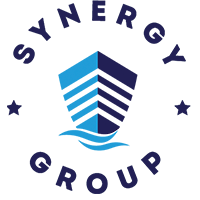The maritime industry has always been an important part of our society and economy. It has helped to shape our world and make it a better place. But with growing expansionism there is fear that globalisation will lead to uniformity. However, I believe that these trends can help us towards greater diversity, if we are willing to embrace that and take advantage of its potential.
Diversity, gender equality and inclusiveness are key to providing a sustainable future for the global maritime industry, and also for our company. Genuine diversity is about creating a thriving environment for all types of people, such that they and also their cultures can flourish. While, in our work environments, we are all really good at talking about these various notions, we need to move beyond just having conversations to actually making things happen.
Lack of diversity in the wider marine sector is no secret, but that does not mean that the task of improvement is hopeless. It is, still, a male-dominated field, and most ships’ crews come from just a handful of countries. Improving diversity will require further changes to our hiring practices, as well as some significant shifts in the way many companies communicate with their employees.
Securing sufficient talent, on a broad basis, is likely to be especially challenging for the maritime industry, which is still lagging behind, particularly when it comes to gender, with only 1.2% of seafarers being female and only around 5% of executive positions held by women.
Innovative companies that foster diversity experience increased profit and better overall financial performance, improved product development and customer service and enhanced employee retention. Furthermore, research shows that diverse groups are better at solving problems creatively than non-diverse ones.
Looking ahead over the next few years, here are some ways by which an organisation could make itself even more diverse and thereby further foster inclusiveness.
– Provide high-value internships and scholarships to employees from under-represented groups that will help them advance more quickly in key roles within the organisation. Just as an example, it is noticeable that people from Indonesia and Thailand are usually preferred as ratings, or for painting or other more menial roles. Instead, the industry could encourage them to pursue engineering and nautical careers and so, increasingly, recruit them as cadets or officers.
– Recognise that bias and discrimination often manifest in systems and practices, rather than intentional acts. For example, worldwide discrepancy in wage scales is well documented and understood, mainly owing to differences in the cost of living in different parts of the world. But a different contract duration for people of the same rank, but of different nationalities, is indefensible. In some cases a Second Mate from an EU country might serve less time on board than someone identical but from, say, the Philippines or China. But they both carry out the same role, so any difference in contract length is unjustifiable. Variation in terms might be attributed to Flag, trade union status or specific legislative requirements, but such things only govern the maximum time to be served on board – they do not forbid shorter contracts. Thus officers of all nationalities should have the same contract length if they serve in the same capacity.
– Ensure accountability by having a process to track progress towards ensuring diversity. For example, an annual crewing report might be used to trace and perhaps even propagate this.
– Provide tools, training, and guidance to all employees on how to contribute positively to an inclusive workplace culture. Thus there could be some fun diversity games, or multicultural sports and art events, and also celebration of a wide variety of festivals. Just observing a few such, like Thanksgiving, Christmas and New Year, does not mean diversity, and might even cause some people to lose their sense of belonging. All could be logged on a specific diversity calendar, and it is likely that understanding multicultural festivals and festivities would be a great way for people to refresh their own awareness – their own consciousness – and it would certainly be rewarded by seafarers’ commitment to the employer company.
– Invest time in researching organisations that have successfully embraced a diverse workforce and identify the core contributors to their success.
– Provide a platform for injured mariners to work ashore during recuperation, or after they have left seafaring. There are many sad stories of seafarers suffering terrible injuries, sometimes leading to permanent disability. A company might offer such people a role ashore, in the recovery interim, or maybe even permanently, if that is suitable, thus creating continuity of employment, reaffirming value and allowing them to still provide for their families. More generally, recruiting differently abled crew, i.e. to serve on board, is almost certainly out of the question, but it is different for positions ashore. What is called disability is not the problem : accessibility is.
– Map out an array of career paths, including those from sea to shore, to help attract the right heterogeneous talent. Also, increasing awareness in schools, and offering maritime options to the younger generation in a less formal way – such as by experience as scouts, guides or local sea cadets – could reinvigorate the image and appeal of the sector.
In the decades to come, many industry roles will be multidisciplinary, and will also very likely require the ability to create, operate and maintain autonomous and technological systems. Upskilling an inclusive workforce to take advantage of emerging technologies such as robotics and artificial intelligence will enhance a company’s prominence and distinction and make it a more attractive employer. For an optimal outcome, implementation of any changes should cascade down the hierarchy of strategic intent. Companies need to develop a mission statement leading on to 2050, and always strive to act on that. I myself envision that by then, if not long before, Synergy will be regarded as one of the most inclusive companies, worldwide, whose ideas have broken down barriers and created more diverse communities within its organisation.
 Chief Officer Ullas Krishnan Unnikrishnan – “CL HUAIYANG”
Chief Officer Ullas Krishnan Unnikrishnan – “CL HUAIYANG”



